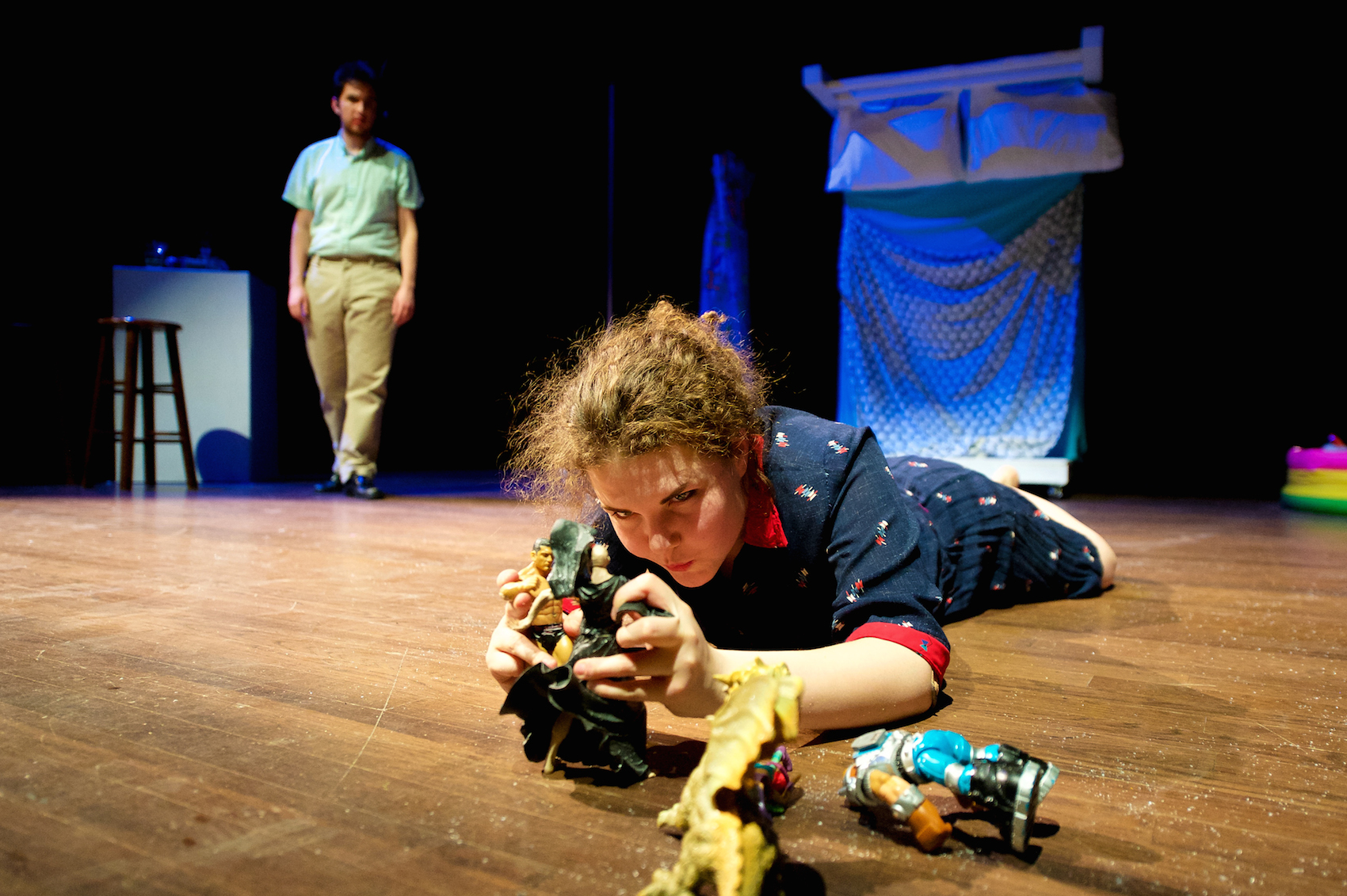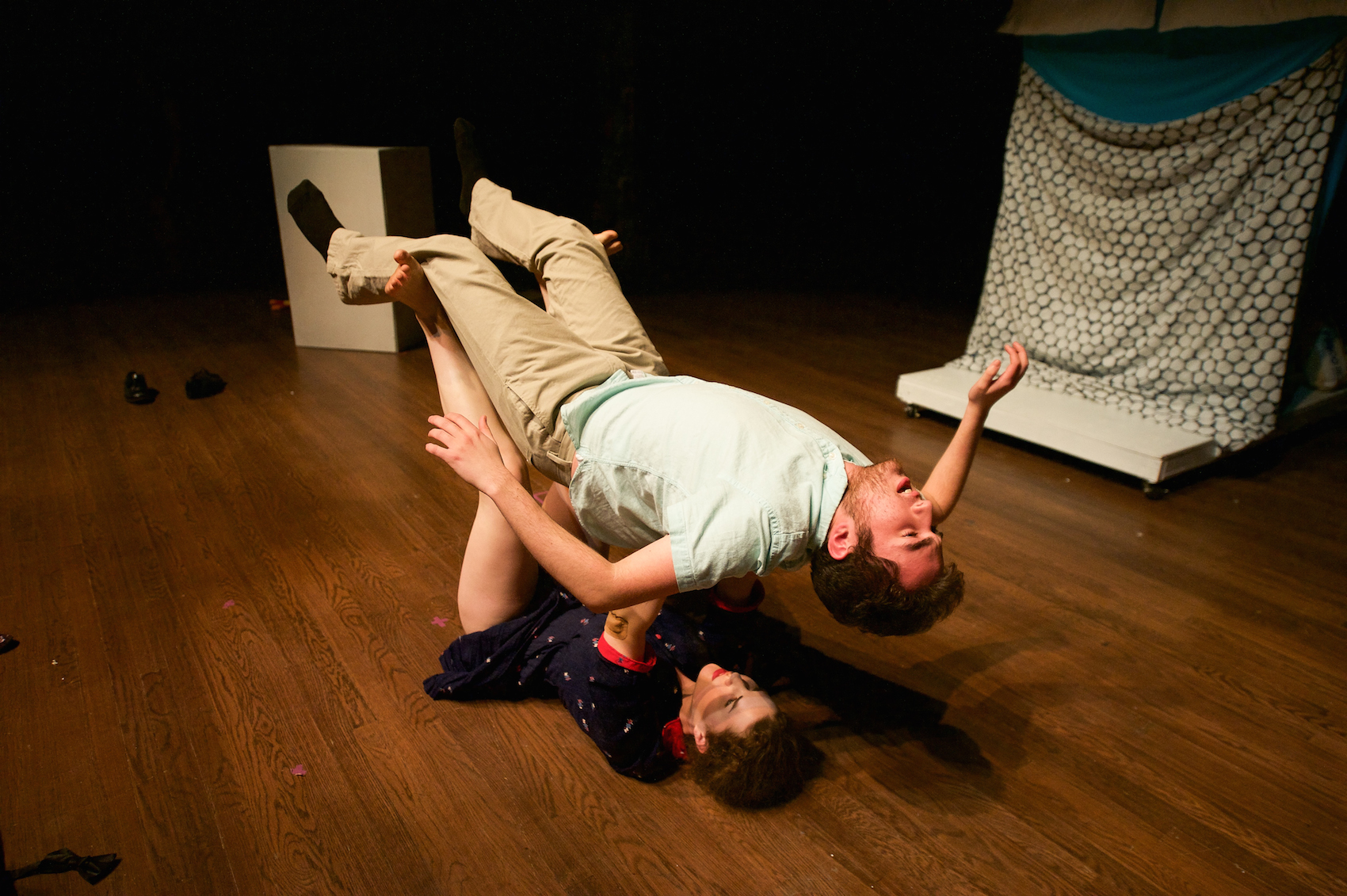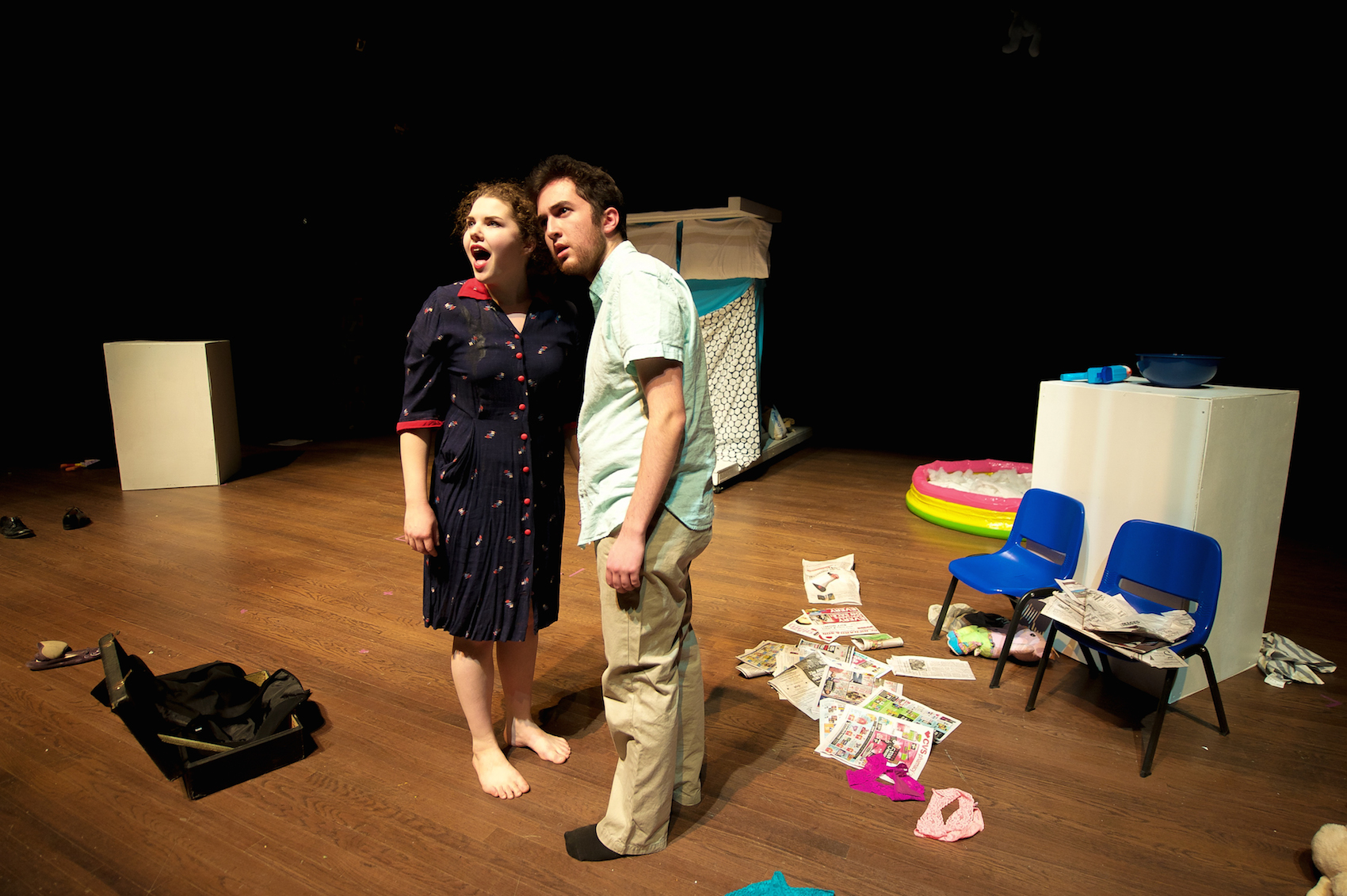Grief is an inherently strange experience. After losing a loved one and dealing with the fact that they are gone forever, the world can no longer make sense. Everything seems meaningless, and yet tiny details take on extraordinary significance. Sacred moral values cease to make sense. The world, in fact, stops making sense, and in many ways, falls into dark absurdity.
Such is the premise of “God’s Ear,” written by Jenny Schwartz and directed here at Wesleyan by May Treuhaft-Ali ’17. Debuting last weekend at the ’92 theatre, Schwartz’s non-linear play follows a family’s grief following the death of their son, Sam. Ted, the family father (Jack Reibstein ’17), cheats on his wife at an airport bar with an old acquaintance Lenora (Olivia Weinshank ’18). Lanie, the family’s daughter, questions everything, constantly asking “But why…” and expressing ridiculous dreams about adulthood such as “I wanna be Helen Keller when I grow up!”
Perhaps Mel, the family mother (Connie Des Marais ’17), has it the worst: She’s followed around by an imaginary tooth fairy (Robin Waterman ’19). She also tries and fails to bury Sam’s old toys and struggles in her relationship with her husband, among other personal dilemmas. Grief consumes all the protagonists, confusing them and manipulating their perceptions in various ways.
The play itself is a baffling mystery, and, almost paradoxically, that is its best virtue. The dialogue is confusing and almost nonsensical at times; at various points in the play, characters will ask each other questions like “How’s the dog?” over and over and over again, prompting different and increasingly strange responses each time.
In another illustration of its absurdity, an early scene in the play escalates from passionate romance between Mel and Ted to vicious, almost comically violent fighting, back to love, and then to accusations of infidelity. While Ted is on an airplane, a flight attendant (Alex Minton ’17) puts a gun to his head, threatening to keep him on the plane indefinitely. Why all of this happens is besides the point; the focus of the play is instead on the existentialism it evokes from the audience, the blending of emotions, and ultimately, its shatteringly sad confusion.
With such a baffling, difficult script, the performers could have easily buckled under the weight of such pressure and difficulty. Thankfully, the cast was made up of extremely qualified performers who were able to overcome such challenges. Marais is the clear star of the show. As Mel, she channels an intense, manic energy combined with deft comic timing, stealing every scene she’s in.
As Ted, Reibstein captured the uncertainty and sadness characteristic of mid-life crises, beautifully portraying a role that shouldn’t have worked in the hands of a college-aged actor. Elizaveta Kravchenko ’19 was electrifying and terrifying as Lanie, portraying classic childhood frustration and confusion about the nature of life itself (although, it is worth noting that she is clearly too tall to be a child; a minor complaint, yes, but one that did occasionally take audience members out of the experience). Weinshank was excellent in her portrayal of Lenora, who is an admittedly clichéd “I’m single and getting older, ha ha ha” character, expertly mixing anger and drunkenness.
The production values and direction itself were similarly excellent. Treuhaft-Ali was able to elicit wonderfully intense performances from her cast, and her staging was both elegant and creative. The fight choreography, conceptualized by Aaron Josephs ’18, was excellently handled. The puppets used by the Tooth Fairy (and a GI Joe toy come to life, played by Minton) were quirky and comical. Perhaps the most pleasant surprise of the night was the wonderful set design by Daniel Gordon ’19. Colorful, minimalist, and random, it reflects the chaotic nature of the play itself.
In spite of the strengths of “God’s Ear,” I would be lying if I said the production was perfect. With all the emotional intensity on display, it’s easy as an audience member to be overwhelmed and drained toward the second half, dampening the intended emotional effect. The lack of an intermission was a major mistake; it became difficult to focus after putting the audience through a wringer of sorrow and misery. Many of the jokes didn’t land as hard as they could have. Frankly, the show was too miserable for its own good.
In the end, however, there was catharsis: the beautiful moment when the family confronts their grief and can move on to face the future. In this moment, they snap out of their confusion and reality restores itself to comfortable logic. It’s a thoroughly beautiful ending (which I won’t spoil here), and it makes up for the minor flaws of the production. It’s a wonderful reminder that, for all the confusion and nonsense of life, there can still exist moments of joy, however brief they might be.
- Lex Spirtes, Photo Editor
- Lex Spirtes, Photo Editor
- Lex Spirtes, Photo Editor
- Lex Spirtes, Photo Editor




1 Comment
Wesleyan Student '19
i personally hate that dan gordon character he shouldn’t work on second stage again, very low energy. Most would describe him as steady.